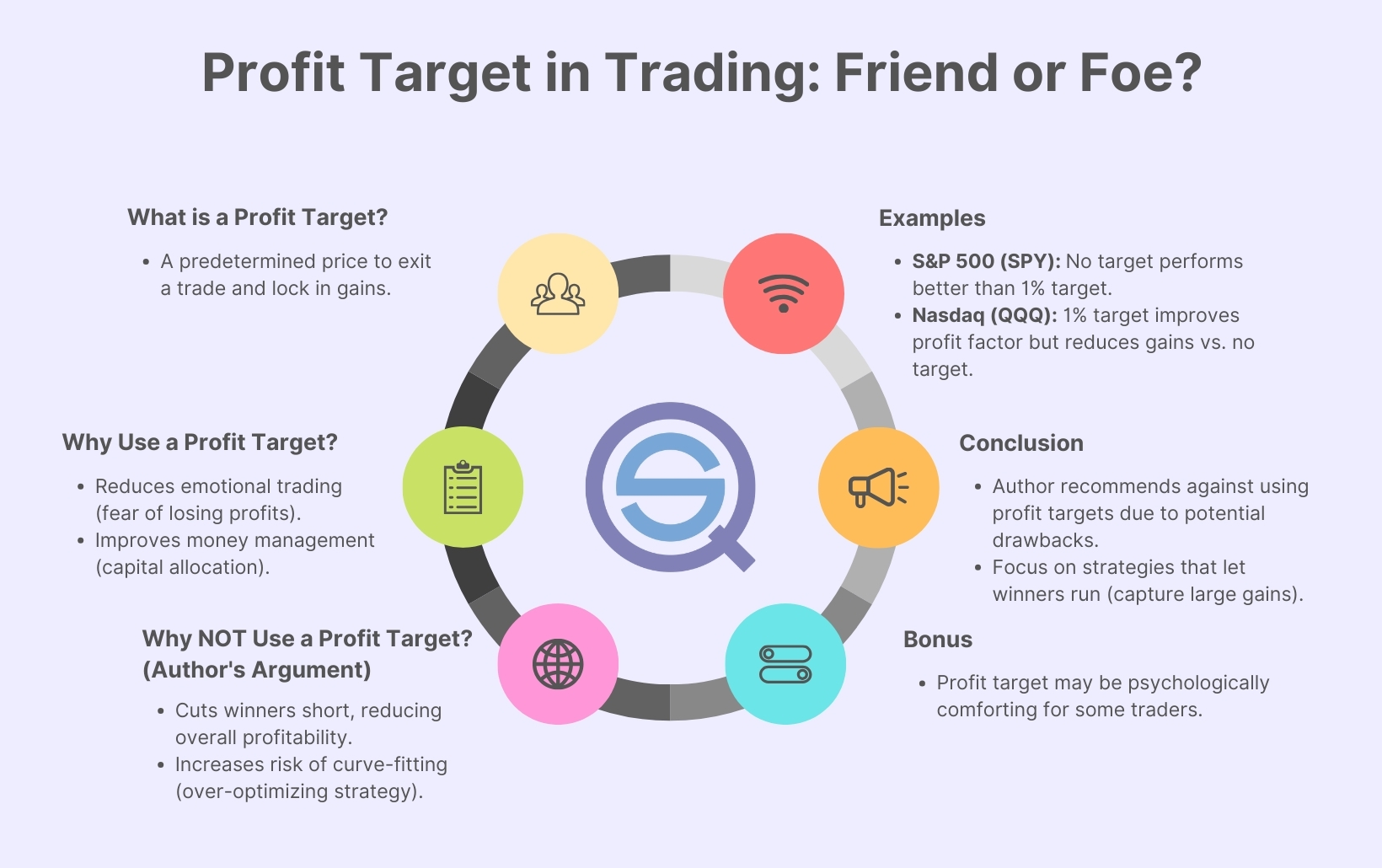Did you know that some traders are so committed they’ll trade with a computer instead of a cup of coffee? If you're looking to elevate your day trading game, understanding prop firms is essential. This article delves into what prop firms are and how they can significantly enhance your trading edge. You’ll discover their support systems, funding methods, and the benefits of trading with them. We’ll also cover key requirements for joining, performance evaluations, profit-sharing models, and the risks associated with these firms. Plus, learn about the differences between prop firms and traditional brokers, and get insights on the best firms to consider. With the right knowledge from DayTradingBusiness, you can make informed decisions to boost your trading success!
What Are Prop Firms in Trading?
Prop firms, or proprietary trading firms, are companies that provide traders with capital to trade financial markets. They allow traders to use the firm’s funds instead of their own, sharing profits and sometimes covering losses. These firms often offer training, resources, and mentoring to boost trading skills. By providing leverage and capital, prop firms can help traders take larger positions, potentially increasing profits. They’re a way for skilled traders to access more trading power and reduce personal financial risk.
How Do Prop Firms Support Day Traders?
Prop firms support day traders by providing capital, reducing personal financial risk, and offering access to advanced trading tools. They often supply training, mentorship, and a structured trading environment. This support allows traders to focus on executing strategies without worrying about fund limitations, boosting their ability to capitalize on market opportunities.
What Are the Benefits of Trading with a Prop Firm?
Trading with a prop firm gives you access to larger capital, which amplifies your trading size and profit potential. They provide professional training, risk management tools, and mentorship that sharpen your skills. Prop firms often have faster execution and better technology, reducing slippage and improving trade precision. They also remove the need for personal capital, minimizing financial risk while allowing you to focus on strategy. Overall, they can boost your day trading edge by offering resources, capital, and support you might not access solo.
How Do Prop Firms Fund Traders’ Accounts?
Prop firms fund traders’ accounts by providing capital in exchange for a share of profits. Traders often pass a qualification or evaluation phase to prove their skills. Once funded, the firm covers trading costs, and traders use the firm’s capital to execute trades. The firm manages risk limits and provides support, boosting traders’ ability to scale their strategies without risking personal funds.
What Are the Common Requirements to Join a Prop Firm?
To join a prop firm, you typically need a solid trading track record or demonstrate your skills through a challenge or evaluation. Most require a funded account assessment, passing risk management tests, and showing consistency in profits. Some firms look for basic trading knowledge, a clean trading history, and the ability to follow strict rules. No specific degrees are usually needed, but proven discipline and a strong understanding of markets help.
How Do Prop Firms Evaluate Trader Performance?

Prop firms evaluate trader performance based on consistency, risk management, and profitability. They look at your trading history, win-loss ratio, drawdowns, and adherence to their rules. They want to see steady profits with controlled risk, not just big wins. They often require you to pass a trading challenge or prove your skill over a set period. Your ability to follow their trading plan and manage emotions also matters.
What Are the Typical Profit Sharing Models in Prop Firms?
Prop firms typically use profit sharing models like a split where traders keep 50-80% of their earnings, with the firm taking the rest. Some firms offer a tiered system where the percentage increases as traders hit certain profit milestones. Others use a drawdown-based model, limiting losses and sharing profits once the trader exceeds a minimum performance threshold. A common setup is a fixed percentage split, often 70/30 or 80/20, that rewards traders for their skill while ensuring the firm covers risk.
How Can Prop Firms Help Reduce Trading Risks?
Prop firms reduce trading risks by providing capital, which limits your personal financial exposure. They also offer risk management tools, strict trading guidelines, and mentorship, helping you avoid costly mistakes. Additionally, prop firms often have access to advanced technology and data, giving you better insight and control over trades.
What Are the Costs or Fees Associated with Prop Firms?
Prop firms typically charge a profit split, ranging from 20% to 50%, and may have evaluation or membership fees. Some require a one-time fee for trading accounts or assessments. There can also be platform or data feed costs, plus potential penalties for rule violations. Overall, costs vary but usually involve profit sharing and occasional fees for account access or training.
How Do Prop Firms Differ from Traditional Brokers?

Prop firms provide traders with capital to trade, sharing profits, while traditional brokers just execute trades for clients. Prop firms often offer better leverage, training, and access to exclusive tools, giving day traders a competitive edge. Unlike brokers, they focus on funding skilled traders and sharing risks, not just commission fees.
What Are the Best Prop Firms for Day Traders?
The best prop firms for day traders include SMB Capital, Topstep, FTMO, and The5ers. They provide funding, training, and access to capital, boosting your trading potential. These firms offer verified accounts, risk management tools, and profit-sharing models, helping you scale your trading while minimizing personal risk.
Learn about Best Strategies for Success with Day Trading Prop Firms
How Can I Increase My Chances of Getting Accepted by a Prop Firm?
To boost your chances of getting accepted by a prop firm, master consistent profitability and demonstrate solid risk management in your trading. Build a proven track record with a trading demo or live account that shows discipline, reliability, and steady results. Study the firm’s requirements and tailor your application to highlight your strengths. Show you're committed to their trading style and rules. Network with traders or industry insiders to gain insights and referrals. Keep improving your skills, stay disciplined, and be persistent.
What Are the Risks of Trading with Prop Firms?
Trading with prop firms risks losing your capital if you don’t meet their targets or violate rules. They often have strict performance requirements, and failing to hit them can lead to account termination. Some prop firms require aggressive trading styles, increasing the chance of big losses. Additionally, traders might face high fees or profit splits, reducing overall earnings. There's also the risk of overtrading to meet quotas, which can drain your funds.
How Do Prop Firms Impact Your Trading Strategy?
Prop firms give you access to larger capital, letting you take bigger positions and diversify your trades. They often provide advanced tools, expert coaching, and strict risk management, which sharpens your strategy. With prop firms, you can focus on refining your edge without risking your own money, boosting your confidence and consistency in day trading. Their evaluation process also pushes you to improve discipline and adapt faster. Overall, prop firms can elevate your trading game by offering resources and a structured environment to develop and test your strategies.
Learn about How Do Prop Firms Impact Day Trading Profitability?
What Are the Key Factors to Consider Before Joining a Prop Firm?
Before joining a prop firm, consider their payout structure, trading capital provided, commission and fee policies, risk management rules, and support resources. Check their reputation and trader reviews. Ensure their trading environment matches your style. Understand the firm’s profit split and payout schedule. Clarify the firm’s risk controls and whether they offer mentorship or educational tools. Make sure their trading platform and technology meet your needs. Assess if their culture aligns with your trading approach.
Conclusion about What Are Prop Firms and How Can They Enhance Your Day Trading Edge?

In conclusion, prop firms play a pivotal role in enhancing the trading capabilities of day traders by providing capital, resources, and a structured environment. They offer numerous benefits, including risk reduction and profit-sharing models, while also presenting specific requirements and evaluations for traders. Understanding the distinct differences between prop firms and traditional brokers is essential for making informed decisions. For those looking to optimize their trading journey, exploring options with DayTradingBusiness can provide valuable insights and support.
Learn about How Do Prop Firms Affect Day Trading Strategies?